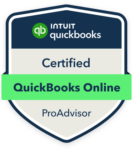Have you ever wondered whether your small business should handle accounting and bookkeeping in-house or outsource? Practical accounting is crucial in taking a small business toward the next level of success. Thus ensuring accurate financial records, compliance with regulations, and informed decision-making.
Outsourcing vs. In-house accounting: Outsourcing is when you pay other people or companies to handle your financial tasks. In-house accounting means having people from your company do the work. Both options have advantages and challenges.
This article will help you understand the critical differences between outsourcing and in-house accounting, guiding you to choose the best option for your business needs. Stay tuned as we explore these options in detail, and for personalized advice, contact LUCI Financial Solutions. We are here to help you manage your money and ensure your small business thrives toward the following levels of success.
Understanding Outsourcing In Accounting & Bookkeeping

Outsourcing vs. in-house accounting and bookkeeping involves hiring external experts to handle financial tasks for your business. This method allows you to use specialized companies’ skills without needing an in-house team. In the modern era, this trend has gone viral as it costs less & assists in the easy handling of multiple tasks.
1. Definition & Overview:
What is Outsourcing in Accounting and Bookkeeping?
Outsourcing in accounting is when you give financial tasks to another company to do for you. These companies do different accounting tasks so businesses can concentrate on their main activities. Various agencies offer these services with expert teams to help you manage your finances efficiently.
Common Services Offered by Outsourced Firms:
Using technical software, outsourced accounting firms offer a range of services such as;
- Payroll Processing
- Tax Preparation
- Financial Reporting
- Bookkeeping.
2. Benefits of Outsourcing:
- Cost Savings: Outsourcing is cheaper than hiring a team of full-time employees. You can save money on paying employees, their benefits, and training them.
- Access to Expertise: Outsourced companies have skilled experts who keep up to date with the newest rules and techniques. This makes your small business valuable & focused towards success.
- Scalability: As your small business grows, you might need different accounting help. Outsourcing lets you adjust the services you need, giving you more flexibility.
- Focus on Core Business Activities: By outsourcing financial tasks, you can spend more time on your business’s main tasks. This helps improve workflow and achieve business goals.
3. Challenges of Outsourcing:
- Communication Issues: Outsourcing can cause communication problems because of time differences or the inability to talk in person. Clear communication channels are essential to avoid misunderstandings.
- Less Control Over Processes: You need more direct control over tasks when you outsource. This can be a concern if you prefer hands-on management.
- Security Concerns: Sharing sensitive financial information with an external firm can raise security concerns. It’s essential to pick a trusted company that keeps your information safe.
Understanding In-House Accounting & Bookkeeping

In-house accounting and bookkeeping involve managing your small business’s financial tasks using dedicated staff. This means hiring people to do all the finance-related work, like keeping track of money, making reports about it, and paying taxes.
What Does In-House Accounting Entail?
This team includes people who record financial transactions, prepare financial statements, and analyze financial data. They work together to ensure the company’s financial records are correct and current and follow the rules.
Roles & Responsibilities of In-House Accounting Staff:
- Bookkeepers: Manage daily financial transactions, record sales, and handle invoices.
- Accountants: Prepare financial statements, perform audits, and ensure compliance with tax laws.
- Financial Analysts: Study numbers to understand how money is used and to help make intelligent choices.
Benefits of In-House Accounting:
- Direct Control Over Financial Processes: With in-house accounting, you have complete control over your financial operations. This means that changes to processes and strategies can be made quickly and to fit specific needs.
- Immediate Availability of Staff: Having an in-house team means your financial staff is always available during business hours. This helps solve money problems quickly and gives immediate help to other parts of the company.
- Better Understanding of Company-Specific Needs: In-house accountants know your small business’s financial needs and details well. They are familiar with the company’s goals, challenges, and history, which enables them to provide more tailored and effective financial management.
Challenges of In-House Accounting:
1. Higher Costs (Salaries, Benefits, Training)
Maintaining an in-house accounting team can be expensive. You must pay your employees, give them benefits, and train them about new accounting rules and technologies.
2. Limited Expertise
In-house teams might have limited expertise compared to specialized accounting firms. Smaller businesses may find it challenging to hire individuals with a broad range of accounting skills and experience.
3. Difficulty in Scaling
As your small business grows, your accounting needs will evolve. Scaling an in-house team to meet these changing requirements can be difficult and costly. You might have to hire more people or buy better accounting software, which can cost a lot.
Head-to-Head Comparison: Outsourcing vs. In-House

Choosing between outsourcing and in-house accounting can be challenging. Each option has its unique costs, benefits, and drawbacks. In this part, we will compare them directly, looking at how much they cost, how much they know, how much they can grow, and how much control you have over them. This will help you make an intelligent choice for your business finance management.
1. Cost Comparison:
Breakdown of Costs for In-House Accounting:
In-house accounting means hiring employees to handle your finances, which includes:
- Salaries: Accountants and bookkeepers’ wages.
- Benefits: Health insurance, retirement plans, and paid time off.
- Overhead: Office rent, utilities, and equipment costs.
Businesses spend 30-40% of their revenue on in-house accounting.
Cost Structure of Outsourcing:
Outsourcing means hiring another company to work for you, and you have to pay them for their service. Watch out for extra costs like setup fees or additional charges you may not expect.
- Service Fees: Regular payments for the firm’s services.
- Hidden Costs: Extra fees for specific services or additional hours.
Outsourcing can reduce costs by up to 50%, providing flexibility and access to specialized expertise.
Which One is Good to Go?
| In-House | Outsourcing |
| Higher overall costs | Lower costs and flexibility |
| Bookkeeper: $45,000/year | Accountant: $60,000/year | $2,500 – $5,000/month |
| Overhead costs: +20% | No overhead costs |
2. Quality & Expertise:
Expertise & Continuous Training in Outsourced Firms:
Outsourced accounting companies hire professionals who keep up with the newest rules and regulations in the industry. Moreover, these companies spend money on training their employees so they can provide authentic services. By outsourcing, you gain access to this high level of expertise without the need to train employees yourself.
Training & Experience Required for In-House Staff:
In-house accounting requires hiring and training employees to meet your small business’s needs. This means learning new things to keep up with changes in rules and how accounting works. Ensuring your employees have the right skills and knowledge can take time and money. Companies spend 5-10% of an employee’s salary on annual training.
Which One is Good to Go?
| In-House | Outsourcing |
| Hire and train employees | Access to continuously trained experts |
| Risk of lower quality if staff is not experienced | Higher quality of service |
3. Scalability & Flexibility
How Can Outsourcing Scale with Business Growth Easily?
Outsourcing makes it easy to expand your accounting services as your business grows. Outside firms can quickly provide more support if your company grows or you need more help with accounting. This flexibility means you will always get the service you need without hiring and training new staff.
Challenges of Scaling In-House Teams:
Scaling an in-house accounting team can be challenging. As your small business grows, you may need to hire additional staff, which involves recruitment costs, training, and providing office space and equipment. This process takes a lot of time and cost. Furthermore, finding skilled accountants to handle your increasing requirements may take a lot of work.
Which One is Good to Go?
| Outsourcing | In-House |
| Easily scales with business growth | Requires hiring and training new staff |
| Quick adjustment to changing needs | Higher costs for recruitment and office space |
| No recruitment or training costs | Delays in finding qualified candidates |
4. Control & Accessibility:
Degree of Control Over Processes with In-House Teams:
You have complete control over the processes when you have an in-house accounting team. You can directly oversee the work, make immediate changes, and ensure everything aligns with your business needs. This control allows for quick decision-making and personalized management of financial tasks.
Accessibility & Communication with Outsourced Firms
Outsourced accounting firms handle your financial tasks remotely. Communication is mainly done via email, phone, or online platforms. While these firms are professionals, lacking direct oversight might lead to less control over day-to-day operations. However, they often have dedicated support teams to ensure smooth communication.
Which One is Good to Go?
| In-House | Outsourcing |
| Full control over processes | Immediate adjustments and direct oversight |
| Professional support and dedicated communication channels | Less direct control but more flexibility |
5. Technology & Innovation:
Access to the Latest Technology and Tools in Outsourcing
Outsourced accounting firms use the latest technology and tools to manage financial tasks efficiently. They invest in advanced software and systems to ensure small business accuracy and finance management compliance. Outsourcing allows you to benefit from these state-of-the-art technologies without purchasing or maintaining them yourself.
Costs and Efforts Involved in Maintaining In-House Technology
Maintaining in-house accounting technology involves significant costs and efforts. You need to invest in software licenses, hardware, and regular updates. Additionally, staff training on new tools and troubleshooting technical issues can be time-consuming and expensive.
Which One is Good to Go?
| Outsourcing | In-House |
| Access to advanced technology and tools | High costs for software, hardware, and updates |
| No maintenance or upgrade costs | Continuous effort for staff training and technical support |
Case Studies – Outsourcing vs. In-House Accounting:
One example is a small tech startup that outsourced its accounting to focus on product development. By outsourcing, they saved 40% on costs compared to hiring an in-house team. The outside company gave them current financial reports, which helped them get $500,000 in venture capital. This helped the new business increase, going from 10 to 50 workers in just two years.
Businesses Successfully Managing In-House Accounting:
A family-owned retail business decided to keep accounting in-house. They hired an accountant who was committed and understood precisely what they needed. This way of doing things helped to make the money work better, with a 20% increase in financial efficiency. The accountant found ways to save money and better manage the inventory, which helped the company make an extra $100,000 in profits each year.
Outsourcing vs. In-House Accounting – What’s the Best Option?

1. Considering Business Needs:
Assess your business’s needs and goals before choosing between in-house and outsourced accounting. Consider your current size and growth stage. A new small business may save money and have more flexibility by hiring outside help for accounting. However, a bigger, more experienced company may want to keep its accounting in-house for more control. For instance, 60% of small businesses find outsourcing beneficial for cost management.
2. Cost-Benefit Analysis:
Conducting a detailed cost-benefit analysis is always crucial. Compare how much it costs to have your team and keep them trained and taken care of with how much it costs to hire an outside company to do the work for you. Add extra costs that could be more obvious, such as software updates and office space. Think about the good things and the problems with each choice before deciding. For example, outsourcing can save up to 30% on operational costs, while in-house teams offer personalized control at a higher expense.
3. Consulting with Experts:
Seeking professional advice can help you make an informed decision. Financial experts can give you advice that fits your business. LUCI Financial Solutions, for instance, offers expert guidance to help small businesses choose the best accounting strategy. With experts’ help, you can ensure that your choice matches your money goals and rules.
Conclusion:
In conclusion, outsourcing and in-house accounting have their advantages and challenges. In-house means you have control over your staff, while outsourcing saves money & gives you access to expert help.
Pick the one best for your small business and matches your goals. For help and advice made just for you, contact LUCI Financial Solutions. We can help you make the best financial management decisions.











